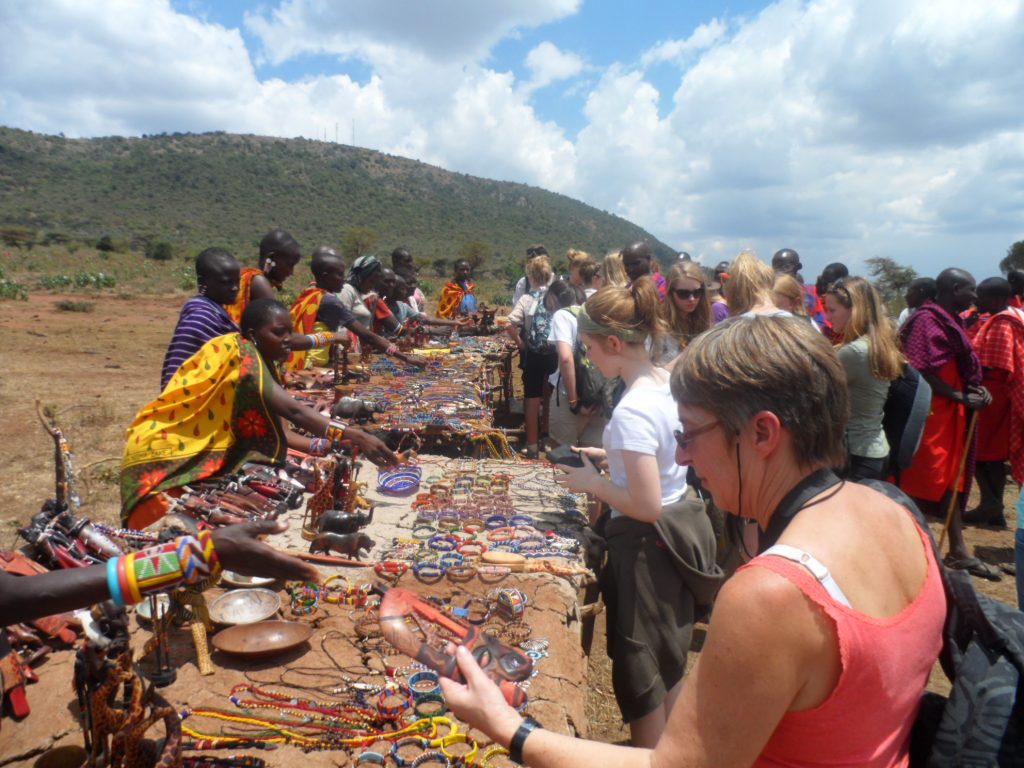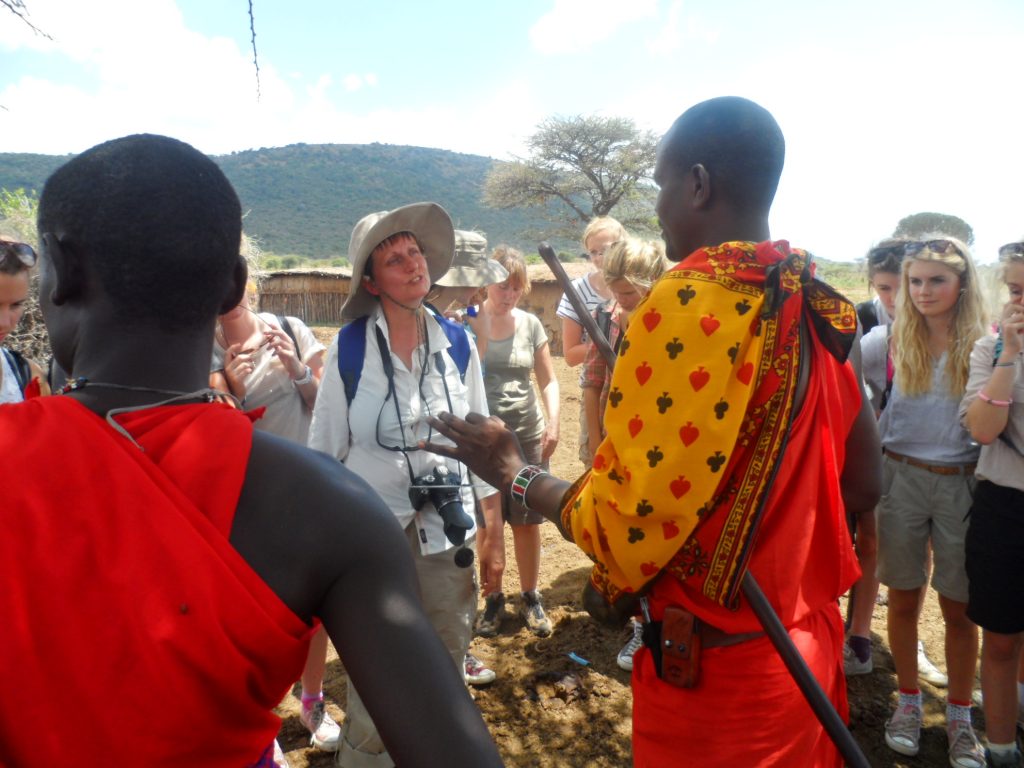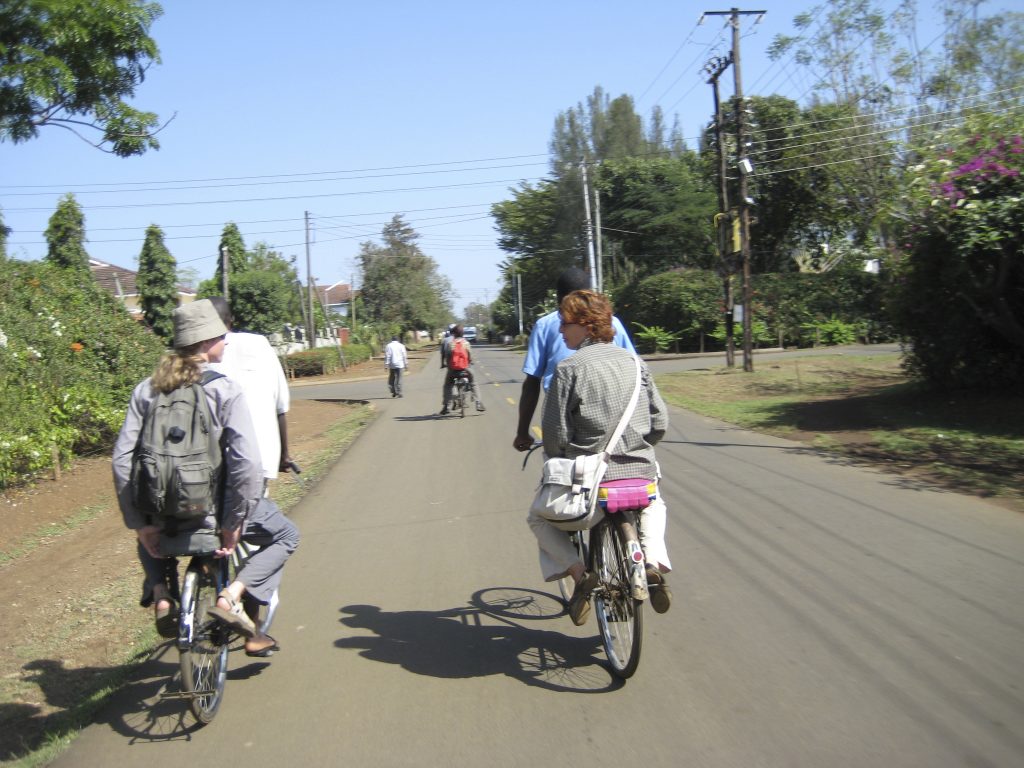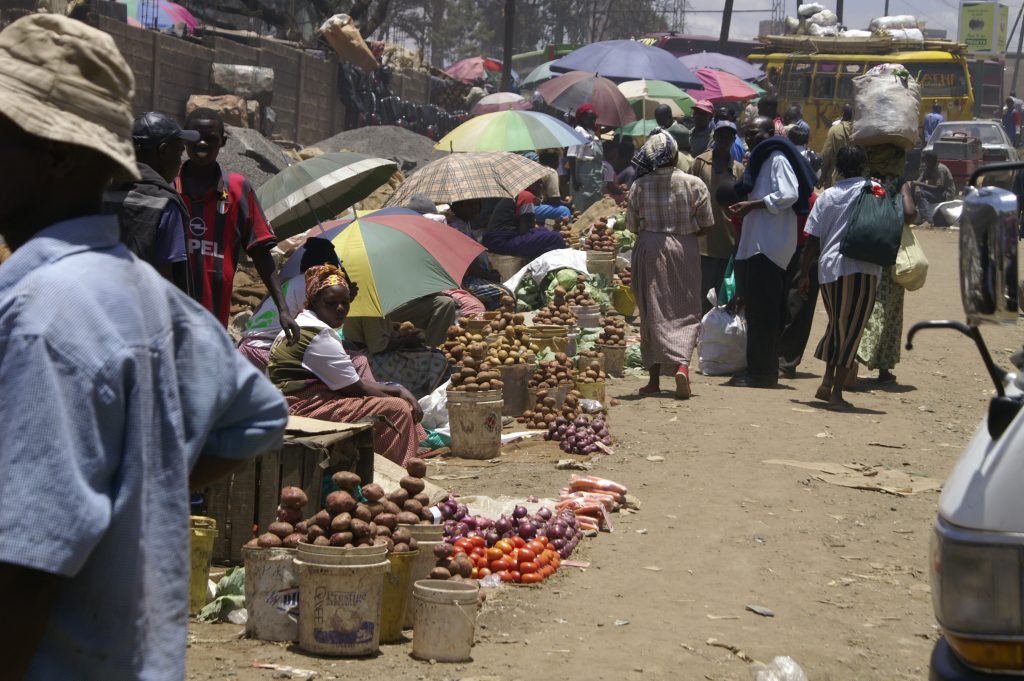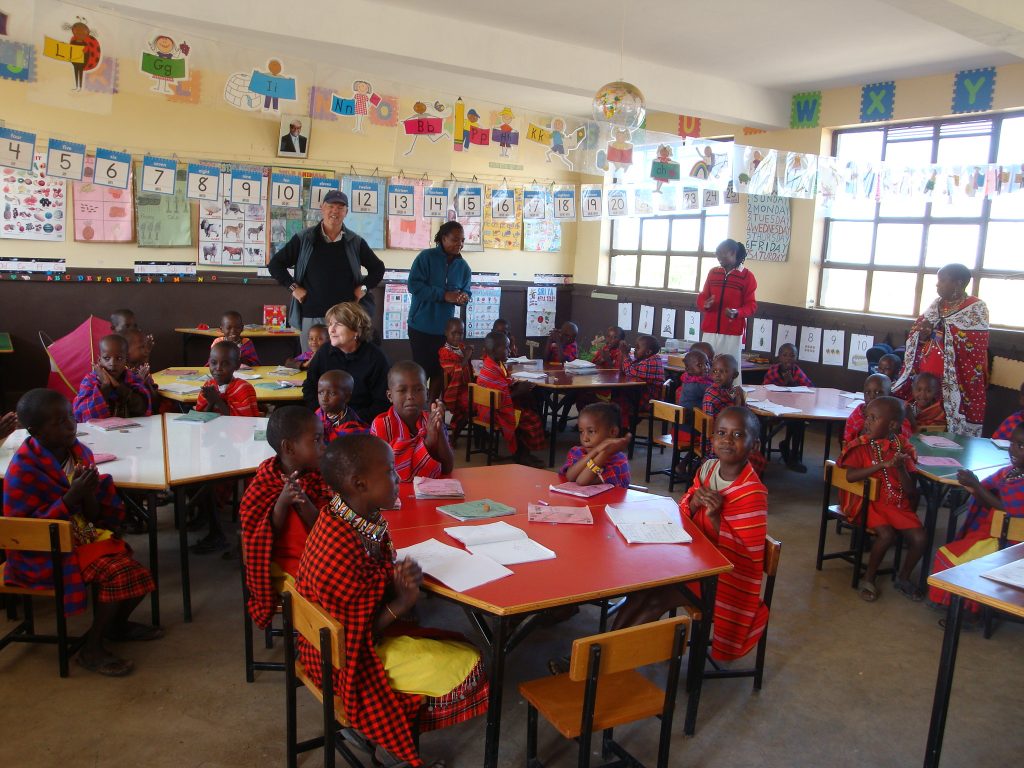- Buying souvenirs locally
- Learn from local people
- Local transport
- Kenyan market
- Maasai school
Whilst tourism is a major driver of the local economies of our destinations, it does pose a threat to the environment and local cultures – the very resources that support our travel. Taking responsibility for our actions ensures that these resources are conserved for successive generations to also enjoy. The following practices reaffirm our commitment to responsible travel:
Traveling and Accommodation
- We travel in small groups to ensure our impact on the environment is minimal. Our groups have a maximum of 12.
- We use well serviced vehicles that comply with the local environmental laws. Our itineraries include walking/hiking so as to reduce driving time hence reduce vehicle pollution.
- On camping safaris, we employ local people as guides and camp assistants. Our guides will only play a facilitative role, acting as a link between the clients and the local guides. This ensures that money goes directly into local hands and gives our clients a chance to closely interact with the local people.
- As much as we possibly can, we use small locally owned camps and lodges, ensuring maximum benefits remain with the local people.
- Use established trails and campsites. Cutting down trees and clearing vegetation for new campsites is not permitted.
- Diversifying our destinations and activities to include tours to least visited areas. This helps to spread out tourism impact and minimise pressure on the more popular destinations. It also contributes to even distribution of tourism income and economic growth.
Energy and water conservation
- We plan to invest in renewable energy sources in order to reduce our dependence on fossil fuels. This includes solar lamps to replace kerosene lanterns as our source of lighting at our campsites.
- Camping at least 50 metres away from water sources
- Clients are advised to consider taking a shower rather than a bath. Our makeshift mobile showers dispense less water than baths.
- Where necessary, campfires should be kept small and the firewood used should be dead wood collected from the field only. There must be NO cutting down of trees for fires.
Local economy
- Partnerships with local ecotourism initiatives that provide a distinctive, honest visitor experience. We encourage local people to show off the natural and cultural heritage of their communities, so that tourists gain a richer experience and the local people develop pride in their locales.
- Support local economies by purchasing food supplies from local markets and participating with small, local businesses.
Waste Minimisation
- When shopping for trip supplies, we avoid ‘single use packaging’ and plastic bags. Reusable paper packaging such as cartons is preferred.
- On camping safaris, drinking water is provided in large containers so as to reduce plastic bottle waste. Only one small refill bottle is provided per client.
- Use of biodegradable food containers rather than plastic bags. Disposable plates, cups and cutlery are not allowed.
- Before leaving, both clients and crew are encouraged to inspect the campsite and collect any trash or food waste.
- Food waste should be buried at least 30cm deep and at least 50m away from water sources. Plastics and cans should carried away to be disposed of at the nearest county council dumpsite. Put out campfires completely and scatter the ash in the bush.

